Disability is a mind set: MUST hosted a meeting on Tuesday, January 30th, 2024, to discuss disability inclusion and support for staff and students. This was organized by the Dean of students (DoS) department under the crosscutting issues docket. Representing the Dean was Ms. Maureen Kahima, the deputy Dean who welcomed the participants and asked them to disseminate what they had learnt. The event was directed and moderated by the University counsellor, Mr. George Byabagambi

Facilitators
The Key facilitators included: Chairperson of the Technical Committee and Deputy Secretary Personnel Mr. Patrick Twesigye, Guild Representative (PWDs): Mr. James Nabyama, Focal Person (PWDs): Madam Angella Nakato, Legal Advisor Timothy Mugumya (Esq), Dean of Students Representative: Ms Maureen Kahima and the coordinator MUST PWDs as well as MUST Representative to council, Ms. Stella Dusabe Byarugaba.
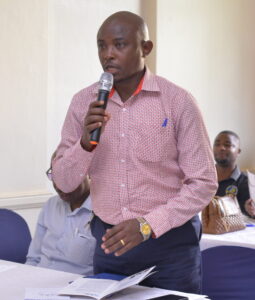
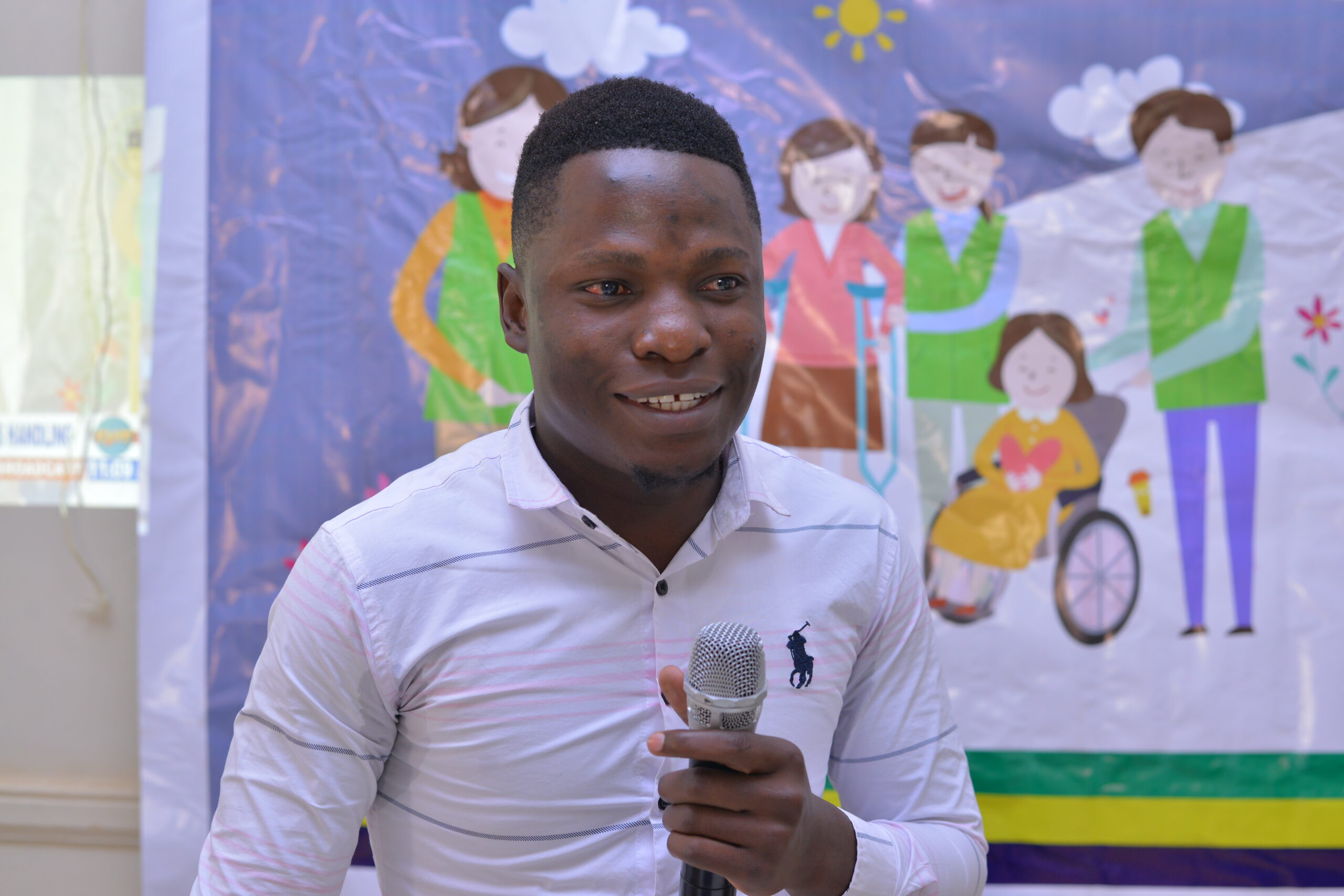

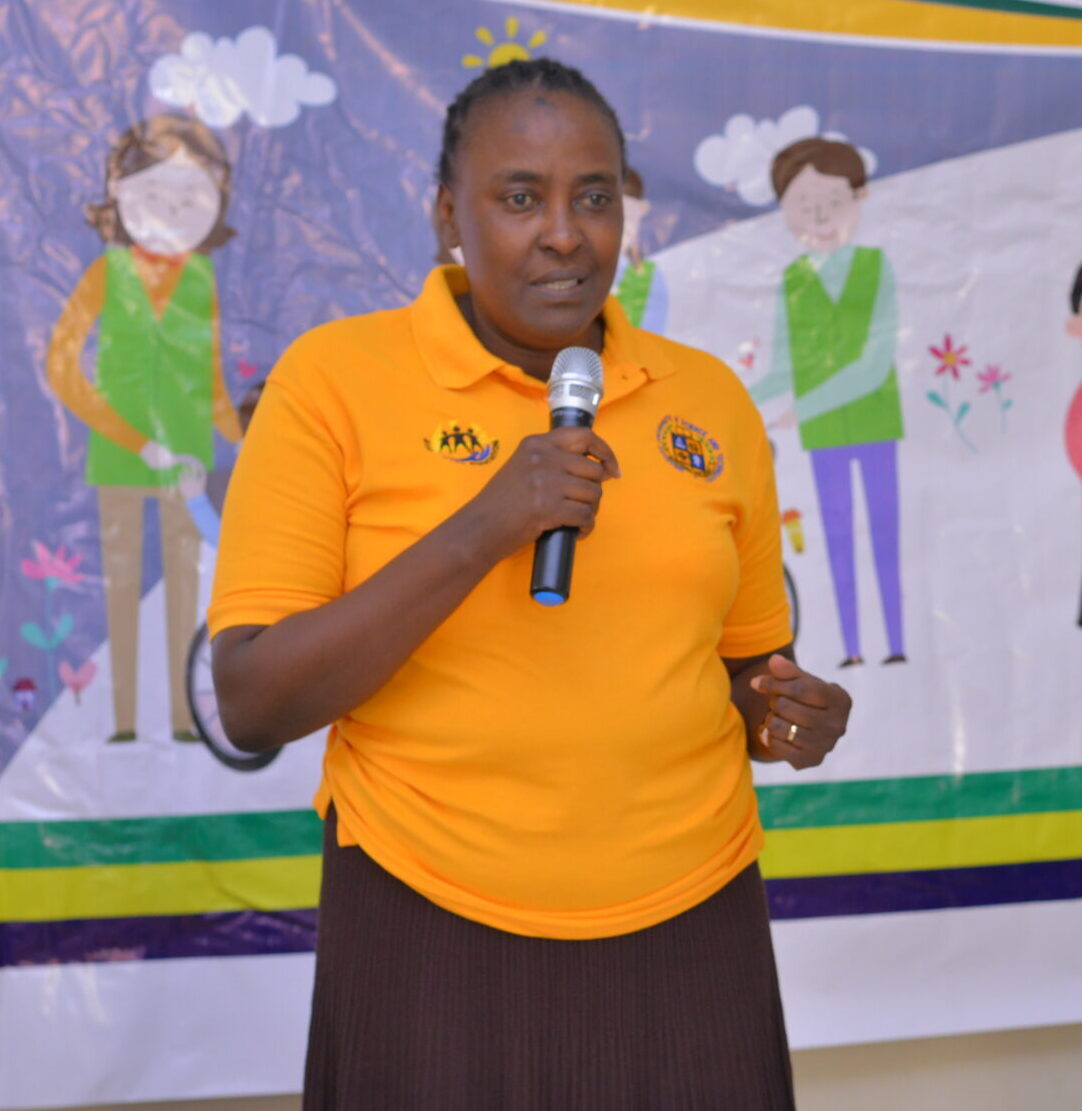

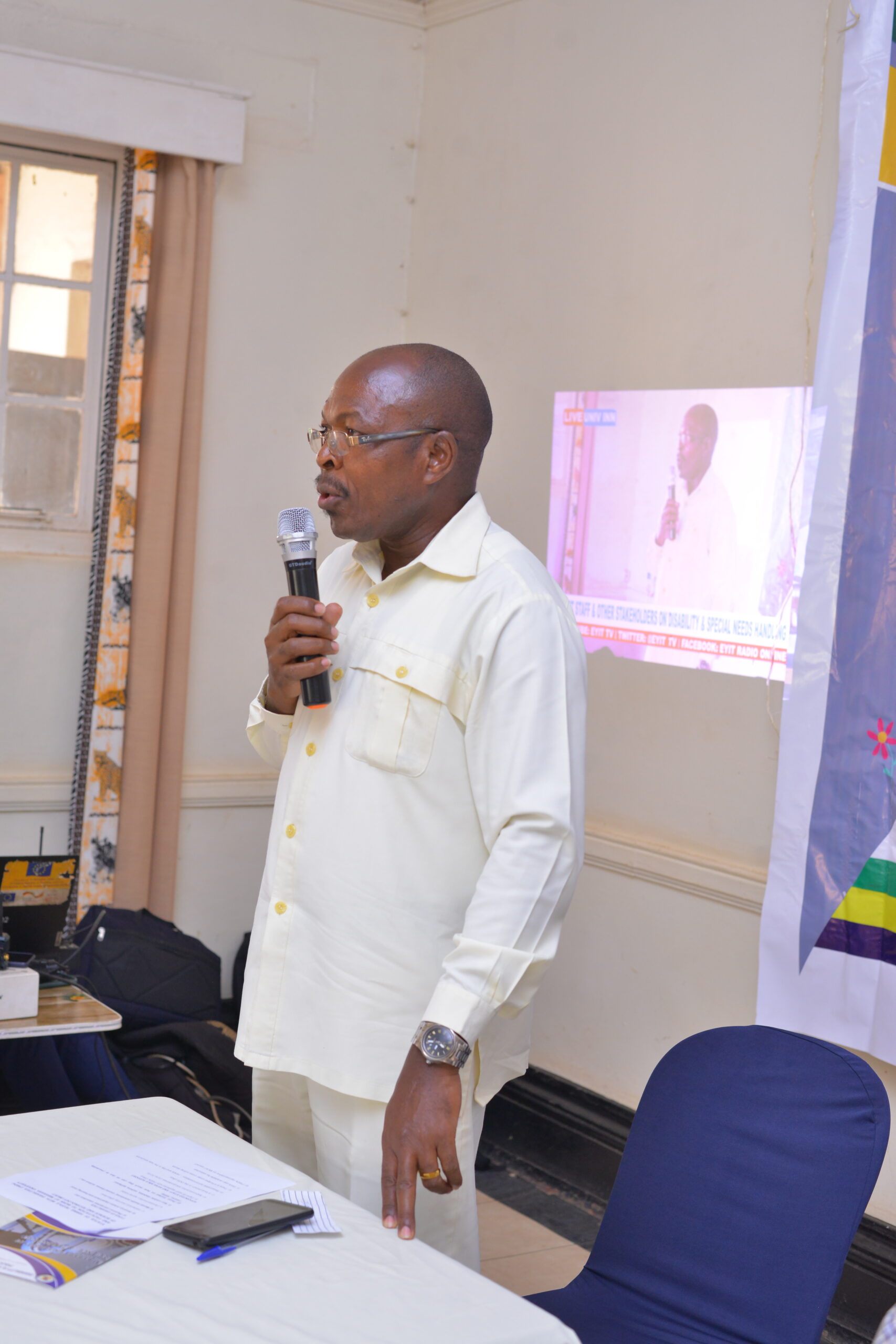
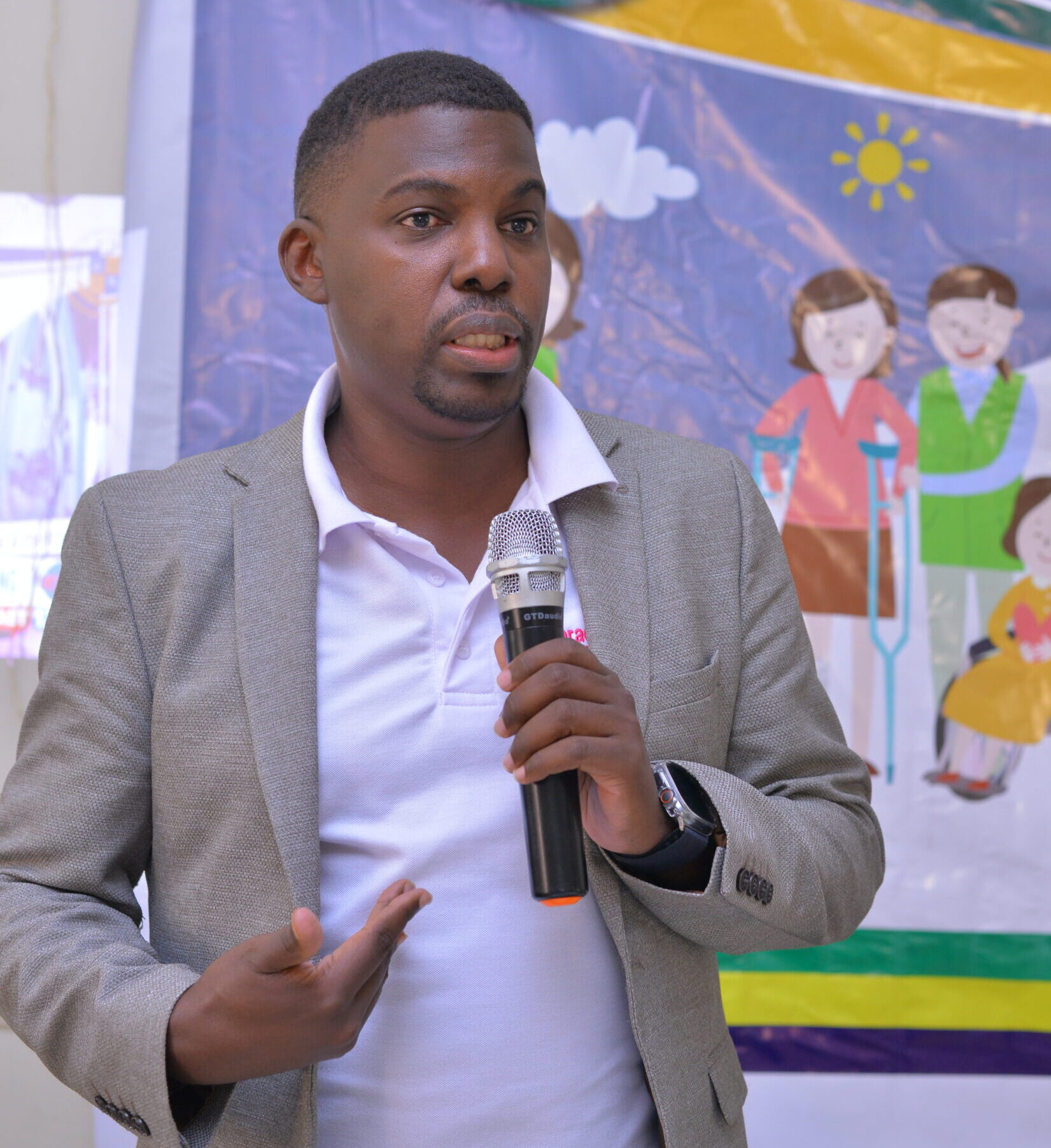
some of the facilitators of the meeting
Sensitization, support and training:
- The meeting, led by Patrick Twesigye, aimed to raise awareness and provide training on handling people with disabilities within the university community. He said, we are all temporarily able and we shall need some of these services when challenged. He thanked the organizers for the training. He said some staff need to be recruited in the special needs unit, but we are not aware of their problem
- Angella Nakato, the focal person of PWDs at (MUST), acknowledged the ongoing efforts to enhance accessibility for students and staff with disabilities (PWDs). She emphasized the collaborative initiative, sparked by the African Development Bank and fully supported by the University administration, aiming to create an inclusive learning environment.
- She distinguished between “special needs” and “disabilities.” Using the example of a student needing English language support, she explained that such challenges fall under special needs, whereas physical disabilities, hearing impairments, visual impairments, dyslexia and others represent true disabilities. Recognizing this distinction is crucial for effective communication and support.

Challenges Faced:
- Ms Maureen Kahima, representing the Dean of Students, highlighted challenges such as outdated facilities lacking ramps, limited resources, and inadequate sensitization efforts. She also noted that the 2019 policy needs reviewing.
- James Nabyama, the Guild Representative (PWDs), appreciated the progress made but identified areas like the Biochemistry lab and upper faculty buildings lacking easy accessibility. He called for a focal person for PWDs in each faculty.
- Stella Dusabe Byarugaba emphasized the need for continuous sensitization, a dedicated wellness center with physiotherapy services, increased financial aid for government-sponsored students, and an external member on the technical committee.
Student Support:
- Ms Kahima highlighted the Dean of Students’ role in supporting students with disabilities and the importance of timely communication regarding needs.
- Collaborations with institutions like Kyambogo University Cyber School were mentioned as valuable resources.
Staff Needs:
- Mr. Twesigye urged staff to register their disabilities for support and highlighted limited awareness as a challenge. He called for a visible office with dedicated staff and tools, addressing structural limitations like staff numbers and accessibility features, and considering provisions for interpreters.
Policy Review and Collaboration:
- Reviewing the existing policy to address current needs, like extra time during examinations for PWDs as highlighted by Mr. Mugumya, was emphasized.
- Stakeholders like Ms Byarugaba called for active collaboration with external members to bring about positive changes.
Appreciation and Moving Forward:
Nakato encouraged student representatives to act as advocates, urging students with disabilities to openly communicate their needs. This transparency, she emphasized, empowers staff and faculty to provide necessary support. “I trust our staff,” she stated, “they are willing to help once made aware of the challenges.” She highlighted specific examples of students with disabilities receiving extra support from dedicated lecturers and administrators due to their openness. She concluded by urging staff to be mindful of their language when interacting with individuals with disabilities, fostering a more inclusive and supportive campus environment.
This meeting provided a platform for open discussion and collaboration towards creating a more inclusive and supportive environment for everyone at MUST.







